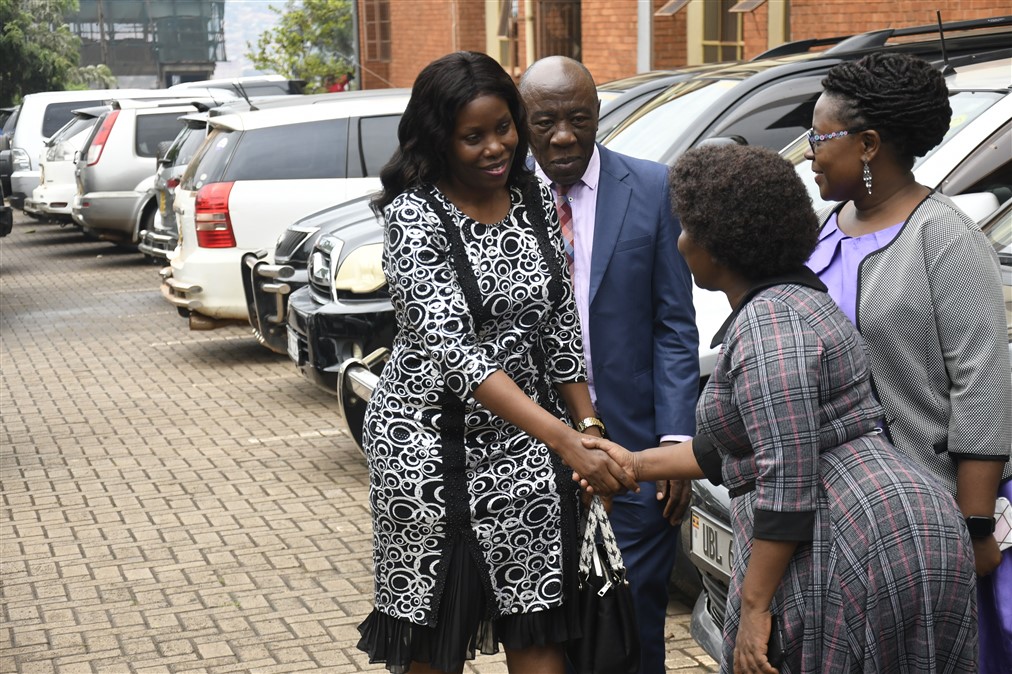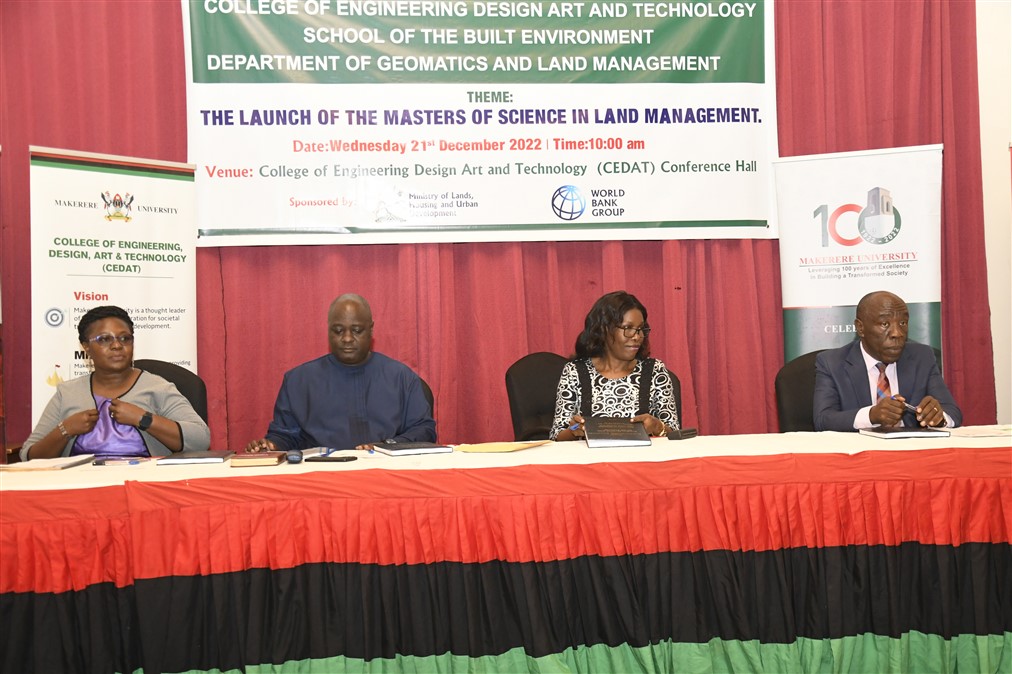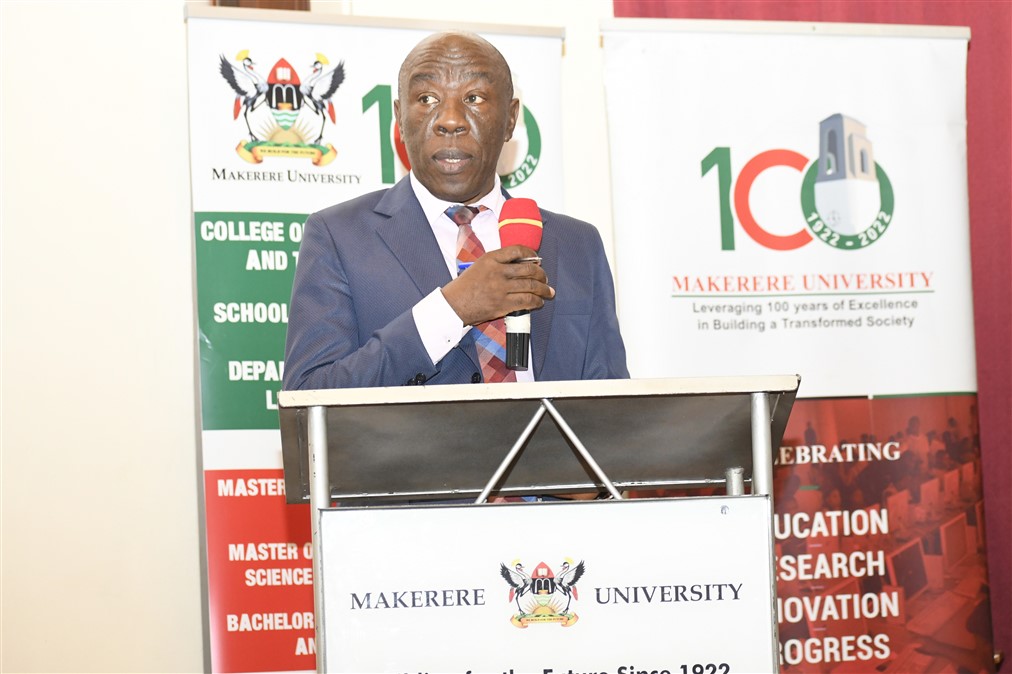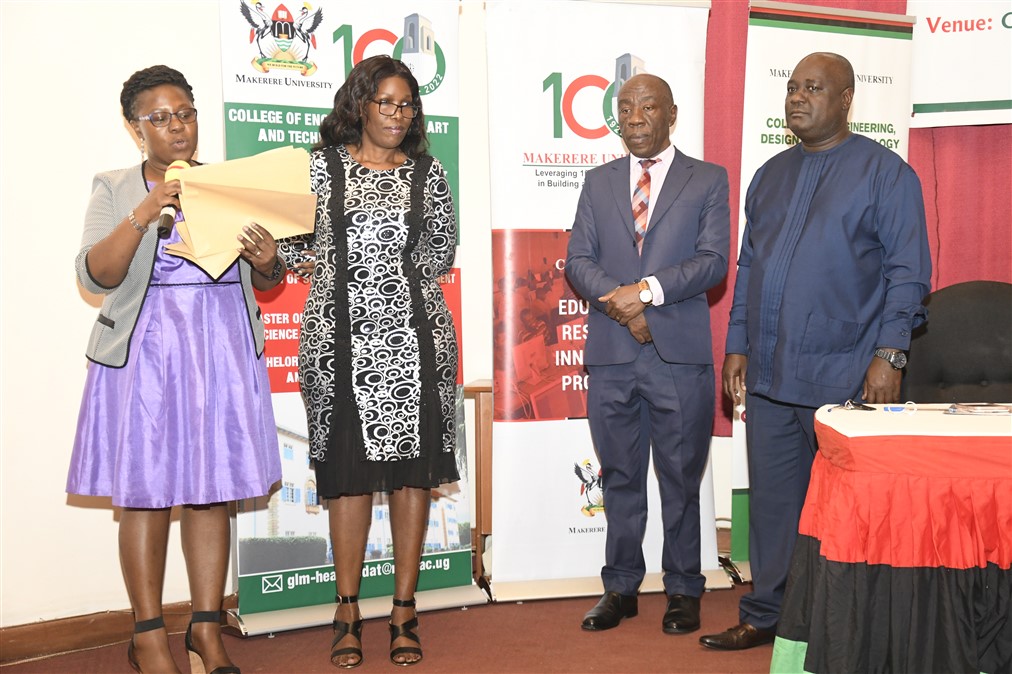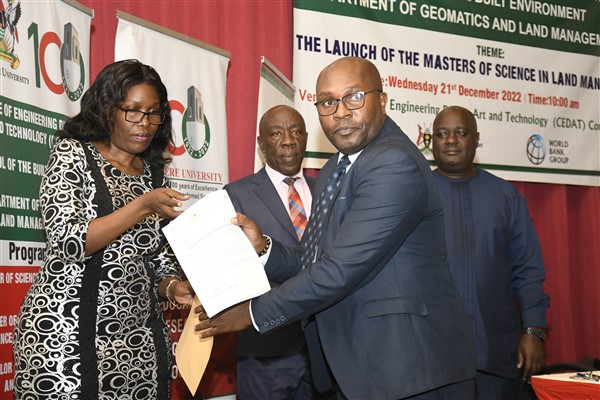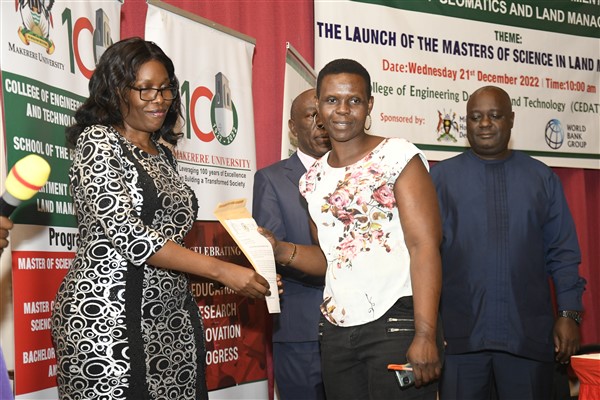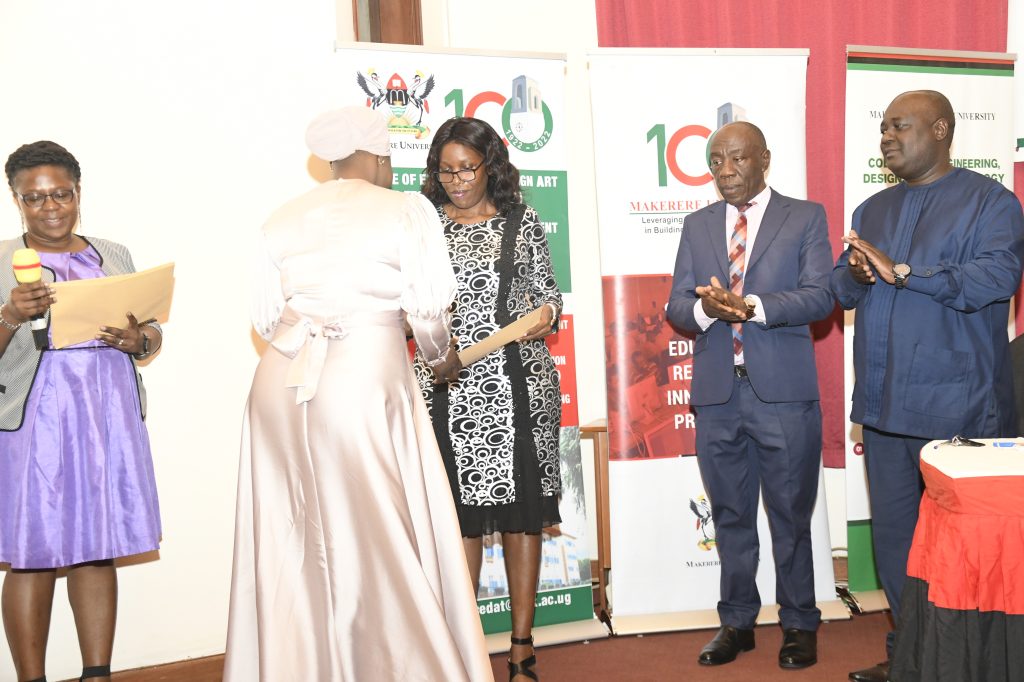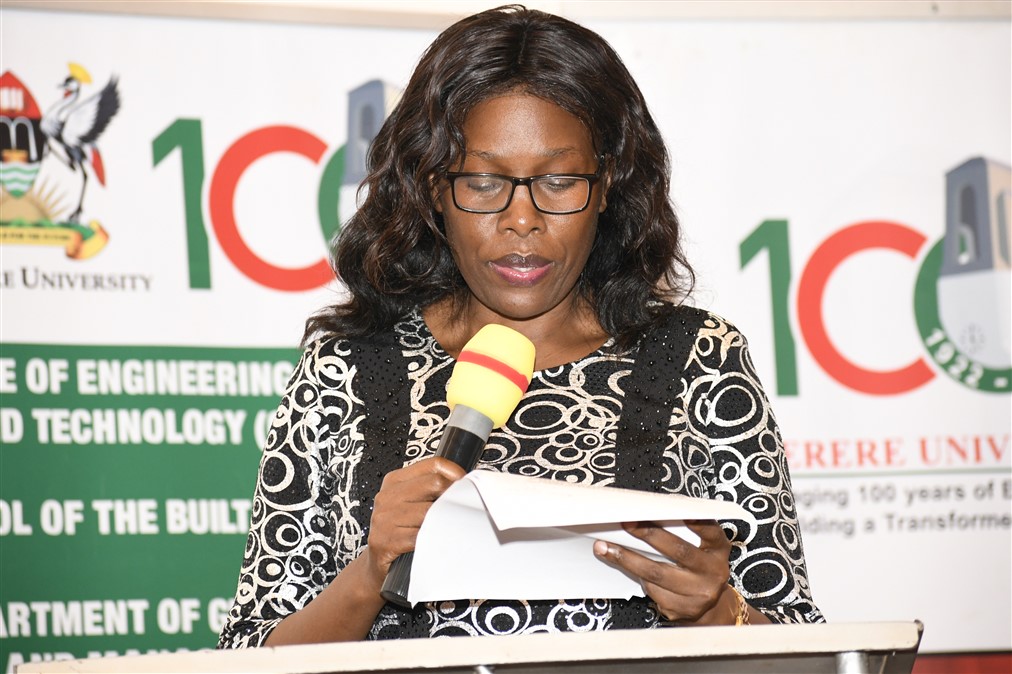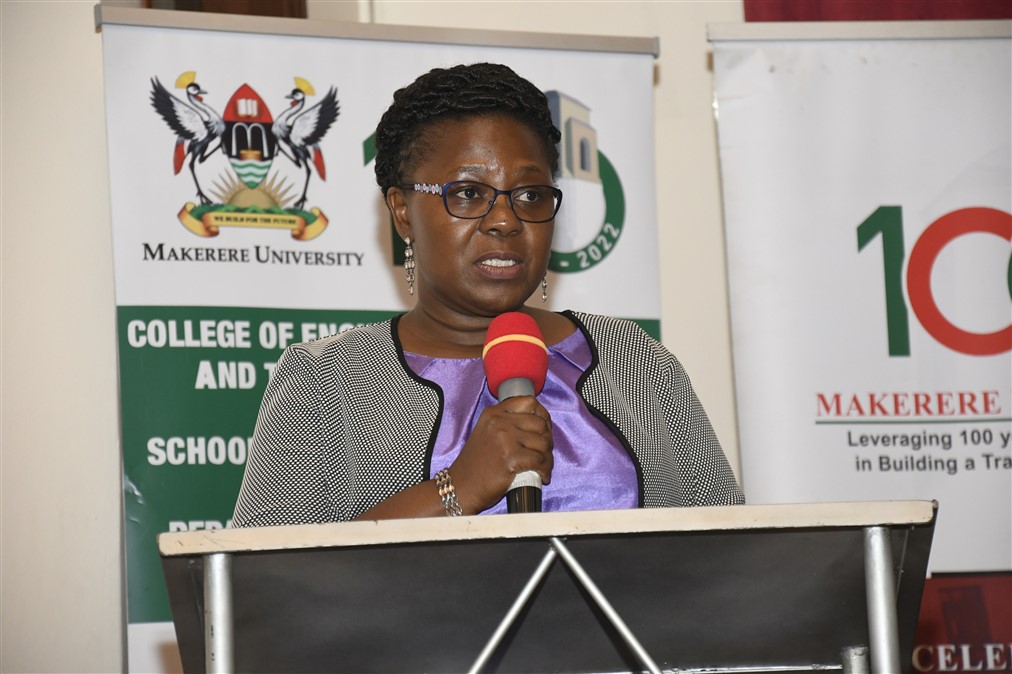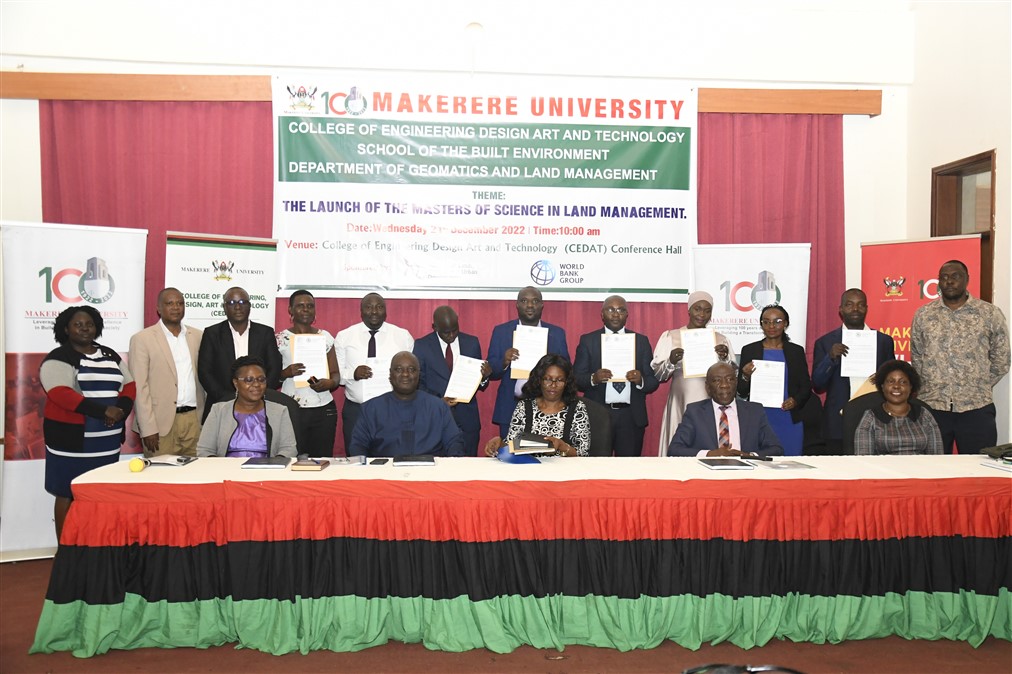
The Master of Science in Land Management program offered by the Department of Geomatics and Land Management at the College of Engineering, Design, Art and Technology (CEDAT) was on Wednesday 21st December 2022 launched.
During the event held at the college and presided over by the Minister of Lands, Housing and Urban Development, Hon. Judith Nabakooba, Ten of the Fifty pioneer students of the two-year program that started this academic year 2022/2023 received scholarships from the World Bank.
In her remarks during the launch held in the CEDAT Conference Hall, Hon. Judith Nabakooba extended her Ministry’s appreciation to Makerere University and CEDAT in particular for developing a graduate program that was needed to leverage land management which is vital in the development of the country.
She said her Ministry was pleased that Makerere University started this program that will train the necessary staff required to help address the varied challenges faced in the land sector that include increased land conflicts and disputes across the country, lack of protection of the land rights for women, the elderly and the marginalized groups, encroachment on the fragile ecosystem in search for fertile soils for cultivation, fraud in land transactions, as well as land fragmentation due to increased population among others.
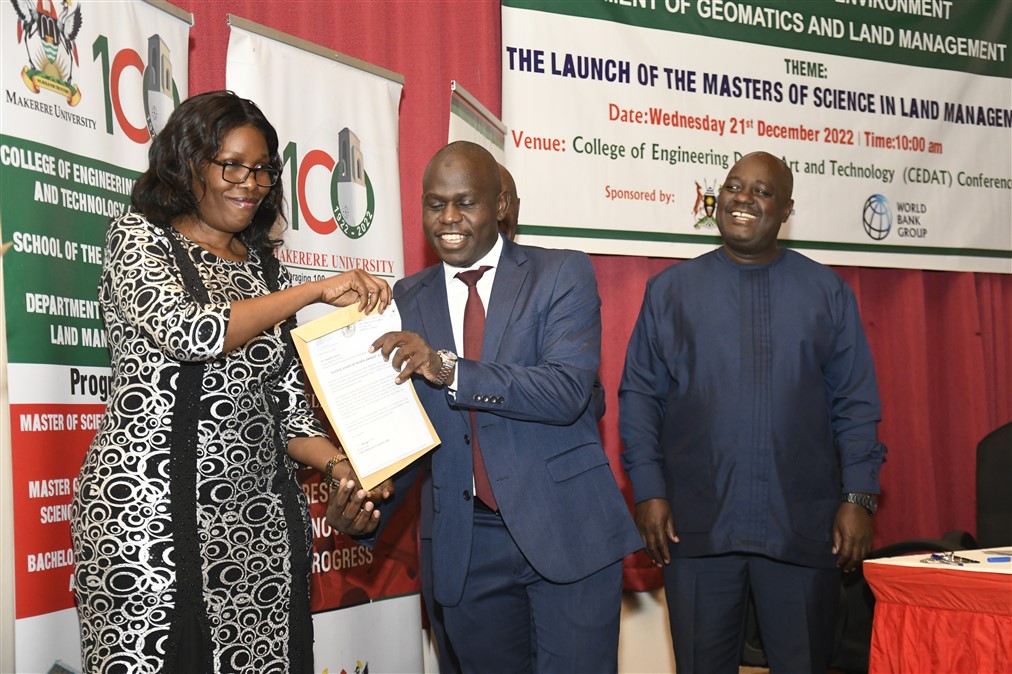
Hon. Nabakooba further extended her Ministry’s appreciation to the World Bank for the scholarships awarded with her Ministry staff as some of the beneficiaries. She encouraged the beneficiaries of the scholarships to work hard and complete the program in the scheduled time. She further pledged her Ministry’s commitment to work with the University especially the Department of Geomatics and Land Management in the effort towards addressing the land related challenges we face as a country.
She informed the gathering that she had participated in giving out thousands of land titles to Bibanja holders as well as issuance of Certificates of customary ownership to rural small holder farmers including women, the elderly and marginalized groups and that this resulted into reduced land disputes.
She expressed her optimism that the University, through the Masters Program in Land Management would produce a new cadre of all round professionals that would support Government efforts in ensuring that Land as a key resource necessary for national development was rationally managed.
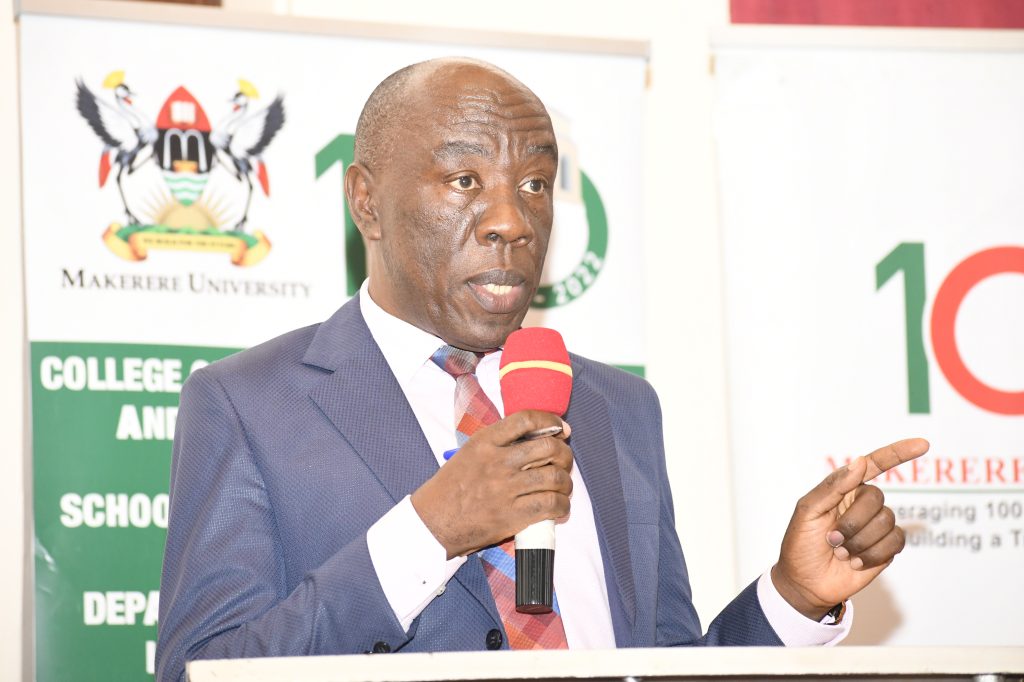
The Deputy Vice Chancellor in charge of Finance and Administration, who is also the Principal of the College of Engineering Design, Art and Technology, Prof. Henry Alinaitwe represented the Vice Chancellor, Prof. Barnabas Nawangwe at the event.
In his remarks, Prof. Nawangwe revealed that the Department of Geomatics and Land Management at the College was started by Government in 1990, following a recognition of the fact that Land was a vital asset necessary for national development.
‘All of us are stakeholders in Land Management because we all need Land however small it may be. I’m sure all of us have seen graphic pictures on land management issues on TV, the Vice Chancellor noted adding that Land was very crucial and that all of us were important stakeholders that needed to play a part in ensuring its proper administration.
He said that Land Management was a pillar for Sustainable Development specifically SDG Goal 2 on ending hunger Goal 5 on gender equity, Goal 11 on sustainable cities, Goal 15 on life on land, and Goal 16 on peace, justice and strong institutions all of which can never be achieved without having good land governance and well-functioning country-wide land administration systems in place.
He made reference to Uganda’s Vision 2040 which specifies the fundamental areas for achieving Uganda’s development goals namely infrastructure that includes energy, transport, water, oil and gas, and ICT; Science, Technology, Engineering and Innovation (STEI), land use and management as well as urbanization. ‘It is clear that most of the above intervention areas relate to land. Improving land management therefore has a direct contribution towards attaining Uganda’s vision 2040’ he emphasized.
While giving reference to land issues faced by the University. Prof. Nawangwe highlighted some of the land management challenges faced by the country that include tenure insecurity which limits land productivity by discouraging investment, land disputes between individuals and communities, overlapping land rights such as those between mailo landlords and tenants, inefficient service delivery hence discouraging land markets and lack of skilled labor force to plan and implement land reforms.
He explained that the new Master of Science in Land Management Program will address the above challenges by providing specialized training on how to address Uganda’s land management challenges, creating land professionals with an appreciation of land management and its contribution to the international, regional and national agenda. He observed that currently land professionals that include surveyors, valuers, lawyers, architects, real-estate agents and others were biased in each of their individual disciplines and lacked a comprehensive view of the land domain. The program therefore, will support the generation of knowledge through research that will provide solutions to land management challenges.
The Vice Chancellor extended his appreciation to a number of stakeholders that worked together towards the start of the program and these included the World Bank that sponsored the establishment of the program up to the tune of USD 500,000. The Ministry of Lands Housing and Urban Development was also recognized for cooperation in developing the program, while the Department of Geomatics and Land Management, School of the Built Environment and the College of Engineering, Design, Art and technology as a whole was appreciated for developing the program.
He said the launch of the program comes in following Makerere University senate and Council approval of the program, implying that the College was cleared to run the program and that equally, it was accredited by the National Council for Higher Education.
Dr. Lydia Mazzi, Head of Department Geomatics and Land Management which falls under the School of the Built Environment said the Masters program in Land Management was the third of the programs offered and that it was in line with the University’s vision of being research led. She applauded some of the staff that were pivotal in the development of the program and these included Prof. Moses Musinguzi, Dr. Ronald Sengendo and Dr. Lillian Mono. She said the department received not only scholarships for the ten students from the World Bank but also an assortment of equipment, teaching materials and offers for international and regional benchmarking opportunities for staff to other universities offering the same program.
Mr. Johnson Mukaga, the project coordinator Competitiveness and Enterprise Development Project (CEDP) in the Ministry of Lands, Housing and Urban Development, while appreciating the various roles played by the different stakeholders in the development of the program said the country was entrusting the University with the land administrators of the country and the region. ‘From now onwards, it will be your sacred duty to keep the flame high and let every young mind and soul under your supervision be ignited with the passions of this flame’, he said emphasizing the fact that land was a key factor of production therefore making land administration essential for land tenure, efficient land markets, and above all promoting good governance’.
It is worth mentioning that before 1990, the Department of Geomatics and Land Management was under the Civil Engineering Department but has grown to align with the trends of the profession. In 2011, the name changed from Department of surveying to Geomatics and Land Management and the program changed as well from Bsc Land Surveying to Bsc Land Surveying and Geomatics.

